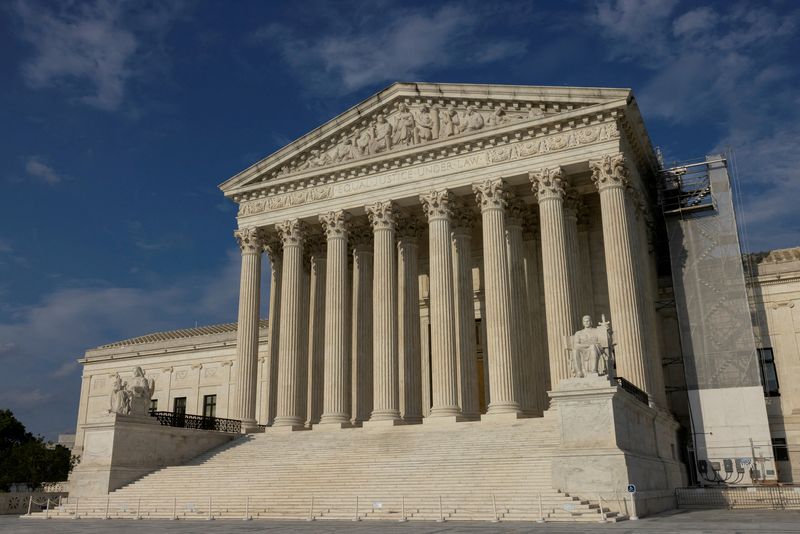By Kanishka Singh and Nandita Bose
WASHINGTON (Reuters) – President-elect Donald Trump has urged the U.S. Supreme Court to pause implementation of a law that would ban or force the sale of popular social media app TikTok, arguing that after taking office should have time to pursue a “political solution.” to the issue.
The court will hear arguments in the case on January 10.
The law would force TikTok’s Chinese owner ByteDance to sell the platform to an American company or risk a ban. The US Congress voted in April for a ban unless ByteDance sells the app before January 19.
TikTok, which has more than 170 million U.S. users, and its parent company have tried to have the law struck down. But if the court does not rule in their favor and no divestment takes place, the app could be effectively banned in the United States on January 19, one day before Trump takes office.
Trump’s support for TikTok is a reversal from 2020, when he tried to block the app in the United States and force its sale to American companies due to its Chinese ownership.
It also shows the company’s significant efforts to influence Trump and his team during the presidential campaign.
“President Trump is not taking a position on the underlying merits of this dispute,” said D. John Sauer, Trump’s attorney and the president-elect’s pick for U.S. attorney general.
“Instead, he respectfully requests that the Court consider delaying the January 19, 2025, deadline for the repeal of the law while it considers the merits of this case, giving President Trump’s new administration the opportunity to to pursue a political solution to the issues at stake. is the case,” he added.
Trump met with TikTok CEO Shou Zi Chew earlier in December, hours after the president-elect indicated he had a “warm feeling” for the app and was in favor of keeping TikTok in the United States for a while longer. have it operated on.
The president-elect also said he received billions of views on the social media platform during his presidential campaign.
TikTok did not immediately respond to a request for comment.
The company has previously said the Justice Department misrepresented its ties to China, arguing that its content recommendation engine and user data are stored in the United States on cloud servers operated by Oracle Corp (NYSE:), while content moderation decisions that affect U.S. users are also made in the United States.
Free speech advocates separately told the Supreme Court on Friday that the US law against TikTok is reminiscent of the censorship regimes put in place by the United States’ authoritarian enemies.

The US Department of Justice has argued that Chinese control of TikTok poses an ongoing threat to national security, a position supported by most US lawmakers.
Montana Attorney General Austin Knudsen led a coalition of 22 attorneys general on Friday in filing an amicus brief asking the Supreme Court to uphold the nation’s TikTok divestment or ban law.


